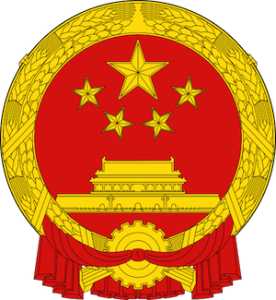Location
For centuries China stood as a leading civilization, outpacing the rest of the world in the arts and sciences, but in the 19th and early 20th centuries, the country was beset by civil unrest, major famines, military defeats, and foreign occupation. After World War II, the communists under MAO Zedong established an autocratic socialist system that, while ensuring China's sovereignty, imposed strict controls over everyday life and cost the lives of tens of millions of people. After 1978, MAO's successor DENG Xiaoping and other leaders focused on market-oriented economic development and by 2000 output had quadrupled. For much of the population, living standards have improved dramatically and the room for personal choice has expanded, yet political controls remain tight. Since the early 1990s, China has increased its global outreach and participation in international organizations.
China is a communist state.
Source: CIA World Factbook
Members:
Resources
Displaying 46 - 50 of 70Regulations of the Xinjiang Uygur Autonomous Region on the administration of rural collective-owned assets.
These Regulations, consisting of 29 articles, aim to strengthen the management of the assets of the rural collective economic organizations, and protect the legitimate rights and interests of the owners and operators thereof. The assets of the rural collective economic organizations belong to all members of the collective economic organization, which are managed by the collective economic organizations, and whose ownership is protected by law. The ownership and the operating rights of assets of rural collective economic organizations may be separated.
Administrative measures of the Guangxi Zhuang Autonomous Region for examination and approval of rural residential lands.
These Measures, consisting of 24 articles, provide for the rules and requirements for rural residential land appilation, examinationa and approval. The term "rural residential land" as mentioned in these Measures refers to the land used by rural villagers for building houses and kitchens, toilets, backyards, etc.The Measures provide for the prohibition of the occupation of basic farmlands for house construction. Urban residents are not allowed to purchase rural residential lands.
Administrative measures of Hebei province for th use of rural residential land.
These Measures, consisting of 24 articles, provide for the rules and requirements for rural residential land appilation, examinationa and approval. The term "rural residential land" as mentioned in these Measures refers to the land used by rural villagers for building houses and kitchens, toilets, backyards, etc.
Administrative measures of Henan province for th use of rural residential land.
These Measures, consisting of 23 articles, provide for the rules and requirements for rural residential land administration.The term "rural residential land" as mentioned in these Measures refers to the land that rural residents have acquired through legal procedures for the construction of residential housing. Rural residential lands are collectively-owned. Rural residents have the right to use the rural residential lands, and do not have the ownership thereof. The ownership and the right of use of the house sites are protected by law.
Measures of Jiangxi Province for Implementation of the Interim Regulations of the People's Republic of China on Urban and Town Land Use Tax.
These Measures are formulated in accordance with the Interim Regulations of the People’s Republic of China on Urban and Town Land Use Tax. The Text, consisting of 13 articles, provides for the rules and procedures relevant to the urban and town land use tax to be satisfied within the administrative area of Jiangxi province.


